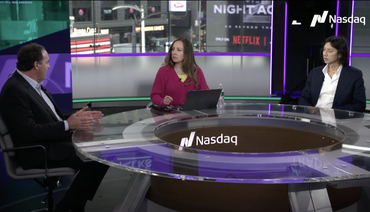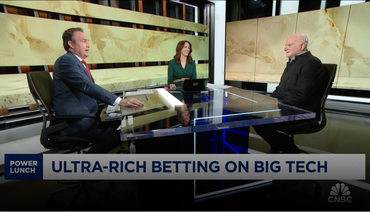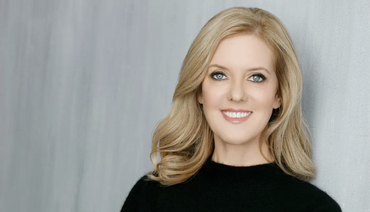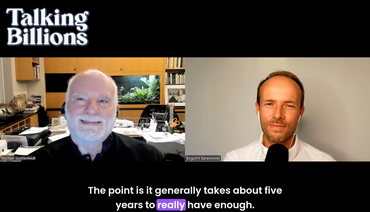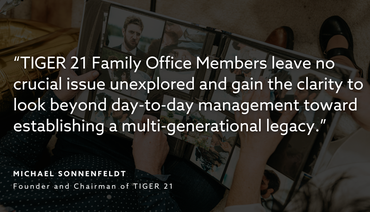TIGER 21 CONCLUDES 2013 ANNUAL MEMBER CONFERENCE
TIGER 21 Concludes 2013 Annual Member ConferenceConference paints concerning picture of world markets and skepticism over government policy; Recent market gains in Dow may be creating a false sense of security fueled by government expansion of money supply
New York, NY (February 14, 2013) – Over a three-day period, during which the Dow Jones Industrial Average reached 14,000, Members of TIGER 21 gathered for their Annual Conference to discuss investment strategies, opportunities, and a host of other wealth-related issues.
TIGER 21 Members had plenty to consider as some of the world’s best and brightest financial minds gave presentations on what they see as economic issues and where there are opportunities. Among the notable presenters: Kyle Bass, founder of Hayman Capital Management; Glenn Hutchins, co-founder of Silver Lake; Pierre Lagrange, co-founder of GLG; Marc Lasry, co-founder of Avenue Capital Group; Eric Sprott, founder of Sprott Asset Management; Barry Sternlicht, CEO of Starwood Capital Group; and real estate icon Sam Zell.
There was not total agreement among the speakers on the direction of the economy, although bears outnumbered bulls. In fact, a theme that underlined many of the presentations was that – despite the Dow reaching pre-recession heights – there is plenty to worry about and more needs to be done to address it. Among the hot-button issues discussed: artificially low interest rates, the potential for inflation, unsustainable government debt levels, and many more potentially disruptive situations around the world that investors should be conscious about.
Dr. George Friedman, founder of global intelligence firm Stratfor, set the tone early in the conference when he discussed his geopolitical perspective on the economy. He explained that from a macro perspective the world periodically undergoes a spasm – usually a war or some other change in control in a major country – and if you are prepared for the spasm, you can live through it.
Dr. Friedman, in particular, highlighted hot points around the globe where changes in government and wars were a possibility – in China where the government is more interested in maintaining employment rather than growing the economy; in Europe, where economic problems are forcing a divide in the EU that is untenable; and he suggested that even the US is not immune because more frequently, middle class families cannot afford to live middle class lives.
“One take-away from Dr. Friedman’s presentation was that the US is better positioned than the rest of the world economically ‚Äì with Asia and the EU having serious and likely growing issues. The US actually looks good comparatively. The big question is whether we use our current advantage wisely or squander it,” said Michael Sonnenfeldt, founder of TIGER 21. Unfortunately there was not a lot of optimism on that score, given the failure of our government to tame our spiraling debt.
“There are a host of issues and considerations Members focus on when shaping their portfolios. The presentations during this conference provided a lot of fodder for TIGER 21 Members because we have learned that better understanding risks is often the hardest part of managing investments wisely, so becoming much more deliberate about understanding and analyzing them is often the hidden key to preserving wealth over the long haul,” said Mr. Sonnenfeldt.The following are some of the takeaways from the conference:
Kyle Bass
Inflation was a topic that almost all of the presentations during the three-day conference touched upon. Kyle Bass sees problems ahead due to inflation and suggested that investors need to protect themselves from it.
“As equity prices keep going higher, it is easy to lose sight of what’s important in my opinion. If you are so focused on nominal pricing and equities and the monetary base is growing as fast as it is, you have to really focus on the insidious nature of what inflation is and how real returns might be negative in both equities and bonds. You’re losing purchasing power,” said Mr. Bass.
He continued, “To protect yourself you need to own productive assets such as apartment complexes or an oil well or a global business that sells things in various different currencies. And if you really want to protect yourself you put long-term fixed rate debt on these businesses‚Äì just don’t put too much debt on these businesses.”
Glenn Hutchins
Silver Lake co-founder and global technology investor Glenn Hutchins stressed the need to think about the global macro environment when allocating capital. “If you get the macro picture wrong, you can make the best micro decision and still get killed.”
Mr. Hutchins continued to lay out what he sees as a recipe for inflation – slow growth, persistently high unemployment, muted consumption, and low interest rates for a long period of time.
Yet, for all the issues facing investors, Mr. Hutchins is optimistic that America has the means to reinvent itself and restore international economic preeminence.
Pierre Lagrange
Pierre Lagrange, who was on the global investing panel with Marc Lasry, explained his views on the attraction of Europe for equity investments:
“It is a bubble that we have to ride because it is going to last for quite a period of time. The economy is so weak and the restructuring is so slow and social pressure is so high that the central banks are going to be forced to continue to put a lot of liquidity at work ‚Äì so you have all the ingredients of a bubble.”
And like Mr. Lasry, Lagrange thinks Northern Europe is where the opportunities are. And taking it even further Mr. Lagrange says, “European companies have to go out of their way to find other things to do because they don’t have domestic demand. They have to get out of Europe ‚Äì which we love because then investing in European companies provides exposure to emerging markets.” And he explained that investing in emerging markets through European companies is more palatable legally, in regards to governance, disclosure, and working with company managers.
Marc Lasry
Marc Lasry proved to be bullish in regards to opportunities presented by global volatility. As a distressed investor, he has defined a strategy to take advantage of the long-term recessionary environment in Europe.
“There are issues in Europe that will work themselves out over time. This provides opportunities over the next five years,” he said. Mr. Lasry favors investments in Northern European countries where the legal structure provides various safeguards. “These are countries where the rule of law dominates,” said Mr. Lasry.
That said, Mr. Lasry also sees upside in the US with about a 2 percent growth forecast. “The dominant economy is still the US. How goes the US, so goes the rest of the world economies,” according to Mr. Lasry.
Eric Sprott
Another presenter with a bearish viewpoint was Eric Sprott, who conveyed a negative outlook on the economy. He lamented the financing of the US government deficit and the inflationary pressure that will eventually need to be reckoned with. According to Mr. Sprott, if the current course of the US continues “I can safely say that social security will not be paid, Medicare will not be paid, and government civil service pension plans will not be paid.”
However, Mr. Sprott sees value in commodity investing. “Gold bugs see the logic of what is going on and know how to react to it,” according to Mr. Sprott, who said he has between 70 and 80 percent of his personal assets in precious metals, which situates him well if countries keep printing money because gold and silver prices will continue to increase. He is a huge believer in owning the physical commodity ‚Äì whether it be gold or silver.
Barry Sternlicht
Barry Sternlicht expressed concern about inflation and other tail risks in the world. On his personal portfolio he said, “I am weary of being levered-long to everything ‚Äì my PE funds, my venture guys, my own real estate portfolio. I’m nervous about the complacency in the world today. Really nervous.”
On investments in light of the tail risks, Mr. Sternlicht said, “I am looking for yield, safety in yield. I’m trying to figure out how to build a portfolio with inflation protection, because the natural outcome of all this has got to be inflation at some point. And if there is no inflation, I’m still OK. I’m not underwriting the inflation, but I want to be able to participate in it.”
Mr. Sternlicht sees the current economic conditions as the perfect period of time for real estate investments. He cited three green lights for real estate investments, including:
- Positive leverage – when the yield on the property is greater than the cost of debt.
- Protected by inflation – replacement costs go up with the cost of construction, so you buybelow replacement cost.
- No new supply – construction of office buildings is at lowest point in the last 50 years and two years ago we saw the lowest construction of multi-family since 1960.
Sam Zell
Sam Zell provided TIGER 21 Members with a broad overview of where he sees the real estate marketplace as well as insight into his approach.
On describing himself Mr. Zell said, “I am a professional opportunist‚Ķ The name of the game is about measuring risk and reward. We need to make sure that we get paid for the risk we take.”
And on the impact of world events on his outlook and the potential for a recession, he said “Most of my life has been spent dealing with assets in various states of distress. Currently, I am not terribly optimistic, which is totally contrary to my personality, considering what I view as the headwinds‚Äì whether they are Israel, the Euro, [what was the] Fiscal Cliff, or North Korea. It seems to me that prices should be materially lower. But stocks are up ‚Äì is business that good? I don’t see it. Rather I see a 50-50 chance of a recession this year.”
“This year’s Annual Conference was undoubtedly a success. Access to world-renowned speakers is a hallmark of TIGER 21 meetings and the Annual Conference is no different,” said Mr. Sonnenfeldt. “And just as important is the interaction of TIGER 21 Members from throughout North America. One of the reasons for holding this event is to expand the Collective Intelligence of our Members and enhance the overall TIGER 21 experience. This year’s conference hit the mark.”
About TIGER 21:TIGER 21 (The Investment Group for Enhanced Results in the 21st Century) is North America’s premier peer-to-peer learning network for high net worth investors. TIGER 21’s 200+ Members collectively manage over $19 billion in investable assets and are entrepreneurs, inventors and top executives. TIGER 21 focuses on improving investment acumen as well as exploring common issues of wealth preservation, estate planning and family dynamics beyond finance. Founded in 1999, TIGER 21 is headquartered in New York City and has groups in New York, Los Angeles, San Francisco, San Diego, Miami, Washington, DC, and Dallas, as well as Canadian groups in Vancouver, Toronto, Calgary and Montreal. More information can be found at www.tiger21.com.
About TIGER 21
TIGER 21 is an exclusive global community of ultra-high-net-worth entrepreneurs, investors, and executives.
Explore the TIGER 21 Member Experience